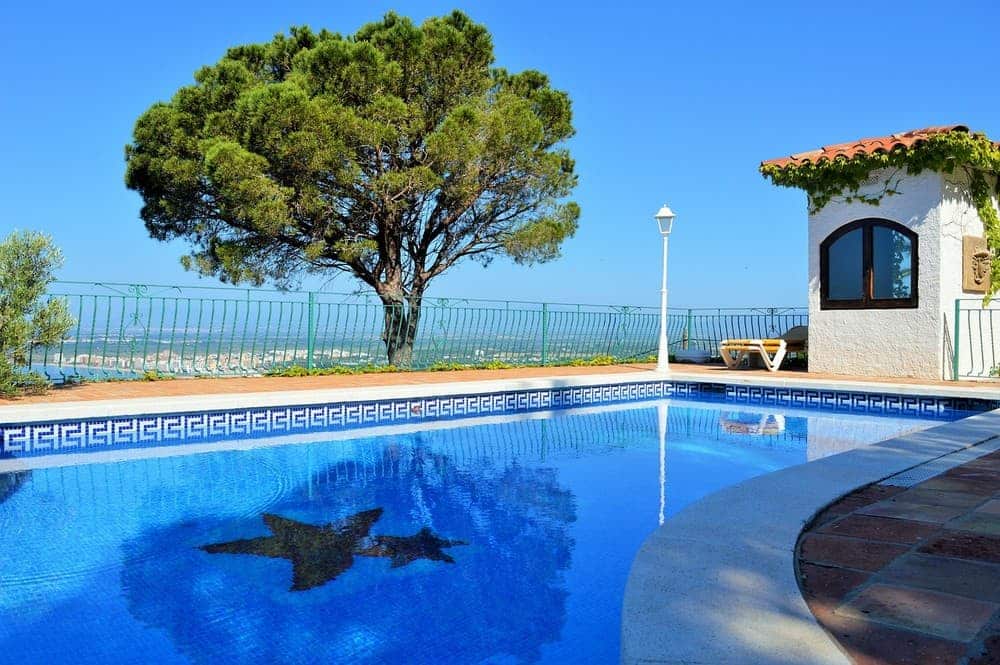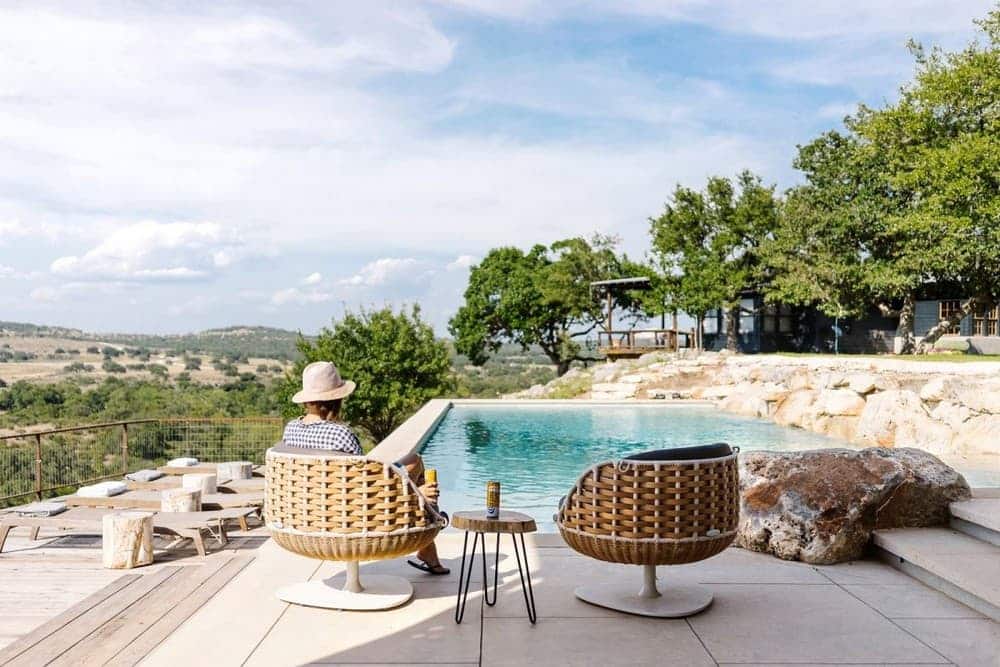
Solar power is making waves in the world of renewable energy, and one of its standout uses is pool heating. Instead of traditional electric or gas heaters, we can now use the sun’s energy to warm our pools.
This article explores the ins and outs of solar-powered pool heating, highlighting its advantages and how it works. Dive in to learn how you can swim sustainably.
Why Solar Power for Pool Heating?
If you are looking for a way to heat your pool, solar power is an excellent choice. There are several reasons why solar power is a great option for pool heating.
Environmental Benefits
One of the most significant benefits of using solar power for pool heating is that it is environmentally friendly. Solar power does not produce greenhouse gas emissions, meaning it has a much lesser carbon footprint than other types of pool heating systems. By using solar power, you can reduce your impact on the environment while still maintaining a comfortable pool temperature.
Economic Benefits
Another advantage of using solar power for pool heating is that it can save you money in the long run. While the initial cost of installing a solar pool heating system may be higher than other types of systems, you will save money on your energy bills over time. Additionally, many governments offer tax incentives for people who install solar power systems, which can further reduce the cost of installation.
Efficiency
Solar power is also an efficient way to heat your pool. The sun brings a constant source of energy, which means that your pool will be heated even on cloudy days. Solar power systems are also low maintenance and can last many years with minimal upkeep.
Using solar power for pool heating has many benefits. It is environmentally friendly, can save money in the long run, and is an efficient way to heat your pool. By harnessing the power of natural sunlight, you can enjoy a comfortable pool temperature while reducing your environmental impact.
Types of Solar Pool Heaters
If you are considering harnessing solar power for pool heating, you should know that you can choose from different types of solar pool heaters. Here are some of the most common types:
Solar Collector Systems
Solar collector systems are the most common type of solar pool heaters. They use solar panels to collect solar radiation, which is then used to heat the pool water. The solar panels can be installed on the roof of your house or in a nearby structure.
Glazed Collectors
Glazed collectors are a type of solar collector that has a glass covering. The glass helps trap heat, making them more efficient than unglazed collectors. However, they are also more expensive.
Unglazed Collectors
Unglazed collectors are a type of solar collector that does not have a glass covering. They are less expensive than glazed collectors but also less efficient. They are best suited for warmer climates where temperatures rarely drop below freezing.
Heat Pumps
Heat pumps are another option for pool heating. They work by pulling heat from the air or ground and using it to heat the pool water. While they are less efficient than solar pool heaters, they can still be a good option for those who live in areas with limited sunlight.
Solar Sun Rings
Solar sun rings are a type of solar mat that floats on the pool’s surface. They work by absorbing sunlight and transferring the heat to the water. They are easy to install and relatively economical but less efficient than other types of solar pool heaters.
When choosing a solar pool heater, it is essential to consider factors such as your climate, the size of your pool, and your budget. By selecting the correct type of solar pool heater for your needs, you can enjoy a warm and comfortable pool all year round while reducing your environmental impact.
Installation Process
If you have decided to harness solar power for your pool heating, the installation process is crucial to ensure everything runs smoothly. Here are some essential factors to consider during the installation process, so you can upgrade your pool effectively.
Choosing the Right Location
The location of your solar panels is critical for optimal performance. You want to choose a place that receives the most sunlight throughout the day. The ideal location is south-facing with no shade or obstructions. Your roof is the most common location for solar panels, but you can install them on the ground or in a nearby structure.
Size and Capacity Considerations
The size and capacity of your solar panel system will depend on the size of your pool and the amount of heating you require. A larger pool will require a more extensive solar panel system. It would help if you also considered the climate in your area and the amount of sunlight you receive throughout the year. A professional contractor can help you determine your system’s appropriate size and capacity.
Professional Vs. DIY
While some homeowners may be tempted to install their solar panel system themselves, it is recommended to hire a professional contractor. A professional contractor has the experience and knowledge to install your system correctly and safely. They can also help you navigate any building permits or regulations that may be required.
During installation, your contractor will install the solar panels on your roof or other chosen location using brackets. They will also install piping and equipment to connect the solar panels to your pool’s filtration system.
While the primary focus of this article is on harnessing solar power for pool heating, it’s worth noting another innovative application of solar energy in pool settings: solar pool lights. These lighting solutions provide an eco-friendly and cost-effective way to illuminate your pool area.
Maintenance and Upkeep
To ensure that your solar pool heating system operates at its peak efficiency, performing routine checks and maintenance is important. This will not only extend the lifespan of your system but also help you avoid costly repairs in the long run.
Routine Checks
Regular maintenance checks are essential to maintain your solar pool heating system running smoothly. Here are some routine checks that you should perform:
- Check for any obstructions or debris that may be blocking the solar panels. Remove any leaves or other debris that may have accumulated on the panels.
- Inspect the plumbing system for leaks or any signs of wear and tear. Repair or replace any damaged parts as soon as possible.
- Check the temperature sensors and thermostat to ensure that they are functioning correctly.
- Monitor the water flow rate and pressure to ensure they are within the recommended range.
- Clean the filter and pump basket regularly to prevent clogs and ensure proper water flow.
Seasonal Considerations
- The maintenance needs of your solar pool heating system will vary depending on the season. Here are some seasonal considerations to keep winter; it is essential to drain the system and protect it from freezing t in winter temperatures. This may involve adding antifreeze or covering the panels to prevent damage.
- You may need to adjust the temperature settings in summer to ensure the water is not too hot. You should also monitor the water chemistry and adjust the chemical balance as needed.
Longevity and When to Replace Part
Your solar pool heating system can last many years with proper maintenance and upkeep. However, there may come a time when certain parts need to be replaced. Here are some signs that it may be time to replace parts:
- The system is used to heat the pool more efficiently.
- You notice leakages or other signs of damage.
- The system requires frequent repairs or maintenance.
- The maintenance costs need to be lowered.
When replacing parts, it is essential to work with a qualified service professional to ensure the job is done correctly. This will help to shun any potential damage to the system and ensure that it continues to operate efficiently for years to come.
Economic Analysis
Investing in a solar-powered pool heating system is costly, but it can save you a significant amount of money in the long run. Here’s a breakdown of the economic analysis for installing a solar pool heating system.
Initial Investment Vs. Long-Term Savings
The upfront cost of installing a solar pool heating system may be higher than traditional pool heaters, but it’s essential to consider the long-term savings. Solar pool heaters have a longer lifespan than conventional heaters, with warranties ranging from 10 to 15 years. Additionally, solar pool heaters have lower annual operating costs and no fuel costs, making them a more cost-effective option in the long run.
Potential Tax Credits and Incentives for Homeowners
Homeowners who install solar pool heating systems may be eligible for tax credits and incentives. The federal government offers a tax credit of up to 26% of the system’s cost, and some states and local governments offer additional incentives. Check with your local government to see what incentives are available.
Return on Investment
The return on investment for a solar pool heating system varies depending on the upfront cost, annual operating costs, and potential tax credits and incentives. However, most solar pool heating systems pay for themselves within 2-7 years and continue to save you money for the remainder of your lifespan.
While the initial investment for a solar pool heating system may be higher than traditional heaters, the long-term savings and potential tax credits and incentives make it a cost-effective option for homeowners. Consider investing in a solar pool heating system to save money on your annual pool heating costs and reduce your carbon footprint.
Embracing solar power for pool heating is more than just a trend; it’s a step towards a sustainable future. Not only does it offer environmental benefits, but it also presents a cost-effective solution for pool owners.
As we continue to seek ways to reduce our carbon footprint, turning to the sun for our swimming needs is a bright idea worth considering. Dive into a warmer, greener future with solar-powered pool heating!
Author – Brian, Pool Specialist from Pool Passion









